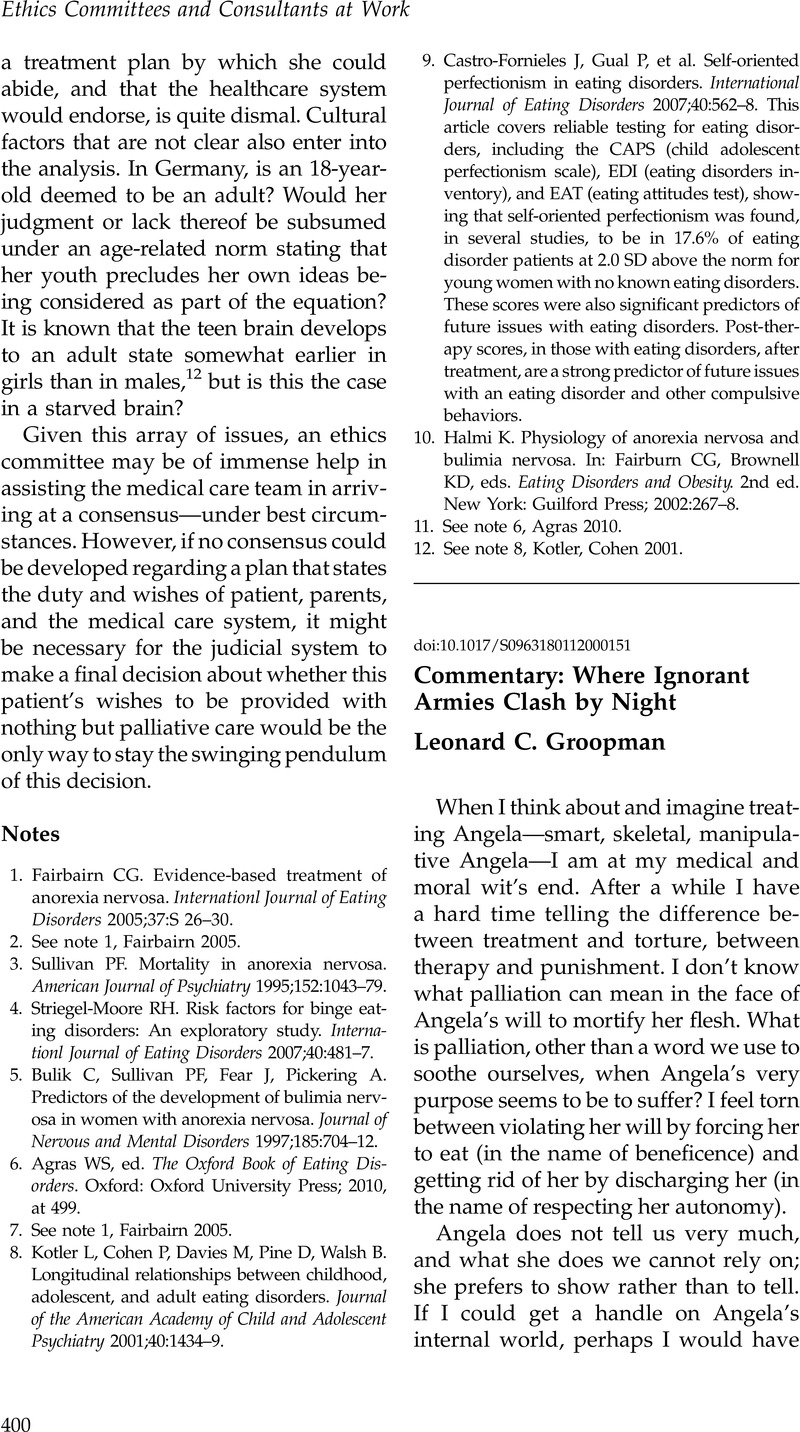Article contents
Commentary: Where Ignorant Armies Clash by Night
Published online by Cambridge University Press: 25 May 2012
Abstract

- Type
- Ethics Committees and Consultants at Work
- Information
- Copyright
- Copyright © Cambridge University Press 2012
References
Notes
1. Kaplan, AS, Garfinkel, PE. General principles of treatment [of eating disorders]. In: Gabbard, GO, ed. Treatments of Psychiatric Disorders. 3rd ed. Washington, DC: American Psychiatric Publishing; 2001Google Scholar:2099–2119.
2. Tiller, J, Ulrike, S, Treasure, J.Compulsory treatment for anorexia nervosa: Compassion or coercion? British Journal of Psychiatry 1993;162:679–80.CrossRefGoogle ScholarPubMed
3. Guarda, AS, Marinilli, PA, Coughlin, J, Hussain, S, Haug, NA, Heinberg, LJ. Perceived coercion and change in perceived need for admission in patients hospitalized for eating disorders. American Journal of Psychiatry 2007;164:108–14.CrossRefGoogle ScholarPubMed See also in the same issue the editorial by Andersen, Arnold E.: Andersen, AE.Eating disorders and coercion. American Journal of Psychiatry 2007;164:9–11.CrossRefGoogle ScholarPubMed
4. Ramsay, R, Ward, A, Treasure, J, Russell, GF.Compulsory treatment in anorexia nervosa: Short-term benefits and long-term mortality. British Journal of Psychiatry 1999;175:147–53.CrossRefGoogle ScholarPubMed This does not mean there is a causal connection between involuntary treatment and poorer long-term outcome; more likely it indicates the greater severity of the disorder and poorer prognosis for those who are hospitalized against their will compared with those who are not.
- 3
- Cited by


